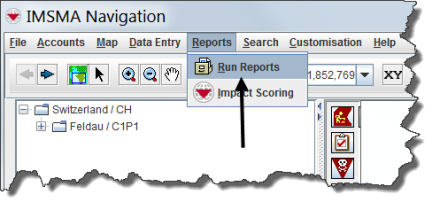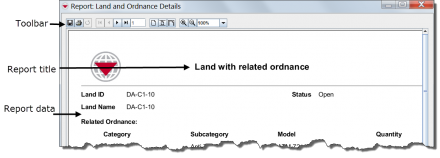Difference between revisions of "Producing Reports Using IMSMANG"
(Created page with "__TOC__ <table cellspacing="5" cellpadding="0" style="float: right; clear: right; color: black; background: #f9f9f9; border: 1px solid #aaa; width: 22em; margin: 0 0 1.0em 1....") |
|||
| Line 45: | Line 45: | ||
| + | [[File:Looking at the Report Results2.png|440px|]] | ||
| − | + | [[Category: Using IMSMA]] [[Category: Quick Reference Guide]] | |
| − | [[Category: Using IMSMA]] [[Category: Quick Reference Guide | ||
Revision as of 03:35, 9 July 2012
Contents
| Related Topics |
|---|
| Producing Reports Using IMSMANG |
|
Running A Saved Report |
| Quick Reference Guide Topics |
|
Producing Reports Using IMSMA |
A report presents your data in relevant formats and layouts. You can design the report template that you want using the report designer. It can then be printed or produced in PDF format.
A report is designed to run on your dataset by selecting a target category such as hazards, field activities or organisations. A report target can be narrowed to a saved search.
Frequently used reports can be saved. Saved reports will always use the current data when they are launched. You can access your saved reports from the IMSMA Navigation window menu bar for Reports.
- Choose Reports > Reports.
- Select the report you want to run and click File:Select the Report.png .
- Choose a saved search from the Search drop-down list and click Run.
Looking at the Report Results


